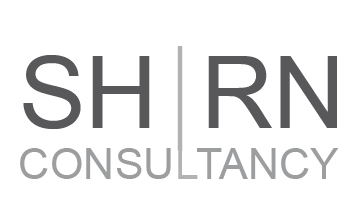A Selection of Projects
SH|RN-Consultancy developed,
implemented or monitored

The Desert Academy Maltahöhe, Namibia
The Desert Academy Training Facility in Maltahöhe is a vocational training initiative tackling youth unemployment in Namibia’s Hardap region.
Wolwedans Desert Academy is fully accredited by the Namibian Qualification Authority and known for producing skilled, in-demand graduates.
To scale its impact, the academy is relocating and expanding to Maltahöhe in 2026. The new facility will improve access to quality education and address job shortages in lodges, farms, and businesses. Through the project fully accredited, industry-aligned, practical, and inclusive training programs in the fields of horticulture, hospitality and facility management will be introduced.
It will equip the training site, qualify training staff and develop respective curricula for all occupations. The project promotes gender equality and economic empowerment. It supports sustainable employment and community resilience.
By reducing rural-to-urban migration, it stabilises local economies. This project is a key contributor to long-term regional development.
This project is co-financed by DEG Impulse from public funds of the German Federal Ministry for Economic Cooperation and Development.
Consultation in the Application Process in 2025
Monitoring and Evaluation Process 2026-2028

AMPLIFY
Empowering Creative Youth through Europe-
Africa Collaborations
AMPLIFY is an innovative project reimagining non-formal music education for youth in Malawi, Mozambique, and Zimbabwe, while building cultural bridges with Europe. Building on the legacy of Music Crossroads, it revitalises training by merging cutting-edge digital tools with immersive, hands-on experiences.
A consortium of three EU and six African partners leads the project, leveraging expertise in youth mobility, hybrid learning, and industry integration for a sustainable model. They oversee all aspects—from curriculum development to transnational mobility—ensuring quality and lasting impact.
The project develops custom digital learning platforms with interactive courses in performance, sound engineering, and creative entrepreneurship. These break geographical barriers, especially for young women, by combining flexible online modules with dynamic in-person workshops to spark innovation and career foundations.
Beyond uplifting African youth, AMPLIFY creates mutual value by bringing fresh perspectives to European partners and institutions. By tackling digital divides, enhancing employability, and fostering long-term EU-Africa partnerships, AMPLIFY directly contributes to Erasmus+ Capacity Building in Youth, bridging continents and shaping the future of creative industries.
Supported by the Capacity Building in the Field of Youth Programme of the European Union in the framework of Erasmus Plus
Consultation in the Application Process, 2025 and Leading the Summative Evaluation Process in 2026/2027
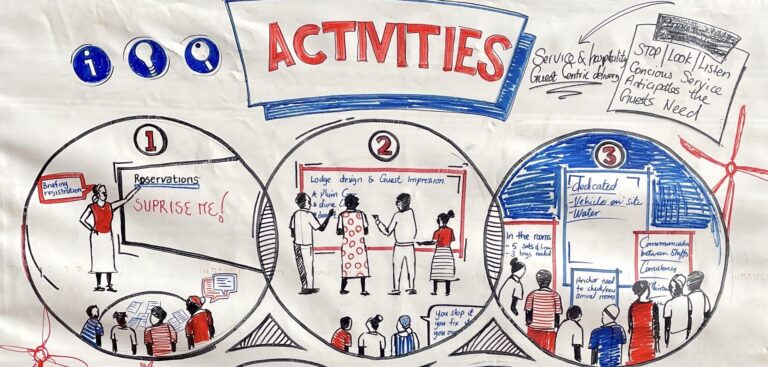
SHIFTING into 5TH GEAR!
Located in the heart of NamibRand Nature Reserve, Wolwedans is more than a collection of camps. It is a collection of dreams.
In this land of blue skies and endless plains you will find beauty to feed your soul, tranquility to clear the mind, and space for your imagination to fly.
You may feel completely overwhelmed at first, but then quickly settle into a landscape and immersive experience which is ‘simply out of this world’.
The workshop 11-14 November 2024 facilitated by SH-RN was a transformative journey, guided by the metaphor of a gearbox.
Just as a well-tuned gearbox allows a vehicle to operate smoothly, the aim was to fine-tune the approach to hospitality, ensuring alignment with Wolwedans’ mission of delivering an exceptional guest experience.
The purpose of Wolwedans is the Pursuit of Happiness and it exists to inspire a new way
Facilitation and Workshop Concept organised by SH-RN Consultancy

End of Term Review Music Crossroads Academies Project
Since its inception, Music Crossroads has been dedicated to transforming occasional musical events into enduring educational platforms that cater to the needs of both established and emerging musicians.
By promoting a holistic approach to music education, Music Crossroads aimed to empower marginalized communities and highlight the tangible potential of music as a profession. The establishment of three academies in Malawi, Mozambique, and Zimbabwe in 2012 represented a major achievement, made possible with support from the Norwegian Ministry of Foreign Affairs.
These academies have evolved into esteemed educational institutions in their respective nations, overcoming social, cultural, and financial obstacles to emerge as recognized centres for music education.
The SHRN team conducted the review through empirical data collection such as desk research, online surveys as well as focus groups of beneficiaries and teachers on the spot.
Interviews with stakeholder representatives, formal and informal interviews with academies followed during field visits in all three countries.
Music Crossroads Academies are supported by the Norwegian Ministry of Foreign Affairs
Evaluation Process in late 2023 and early 2024 including Field Visits to all three countries

DIALOG CITY
A holistic approach towards a digital cultural infrastructure in European cities
In recent years, the term Smart City has become deeply embedded in our language and thought patterns. It means a digitized city that uses technology to collect data, control processes and offer services.
This ranges from electronic administration via self-driving public transport to smart solutions for building management. Almost every area that is data-intensive can be recorded, analysed and optimized accordingly.
The European project DIALOG CITY was born out of the conviction that digital transformation is more of a mindset rather than a purely technical innovation.
Hence the overall goal of DIALOG CITY is to create a socially inclusive, environmentally friendly, and economically sustainable urban digital environment.
By developing new practices on how to connect digital innovation directly to citizens’ physical participation, DIALOG CITY aims at contributing to increase access to culture through a dialogical approach.
Participation is at the core of our project idea encompassing a CITIZEN ARCHIVE PLATFORM for the cultural heritage sector and an innovative design thinking toolkit on FUTURE LITERACY.
Three HYBRID FESTIVALS serve as physical and digital cultural platforms to reach diverse audiences in five European countries.
An ART FOR PUBLIC residency programme invites artists to develop ideas for urban interventions dealing with local or global topics that are of great significance for the respective urban society based on participatory approach.
Supported by the Creative Europe Programme of the European Union
Consultation in the Project Development and the Application Process, 2021
Artistic Coordination, 2022-2025
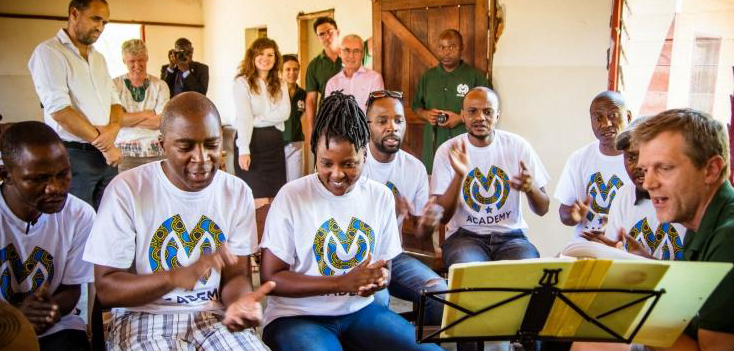
Music Crossroads
Business Schools in Malawi, Mozambique and Zimbabwe
The overall objective of the project is the establishment of a Music Business School – the first of its nature in the three involved countries. In the first year, a total of 50 students in the three countries will have the opportunity to obtain a certificate in music business.
Musicians get the professional opportunity to develop business skills to get a better understanding of the music value chain. The music business schools in the 3 countries cultivate an entrepreneurial environment in which musicians will be more inspired to create and believe that they will thrive in the local and global creative market.
Music Crossroads Zimbabwe is a non-profit organisation that uses the power of music and music education to empower and provide opportunities to young people. Through professional training, live performances and promotion of young talent, Music Crossroads works to develop the music education sector and the music industry in Zimbabwe.
Supported by the Sound Connects Fund in partnership with the Goethe-Institut South Africa.
Consultation in the Project Development and the Application Process, 2021
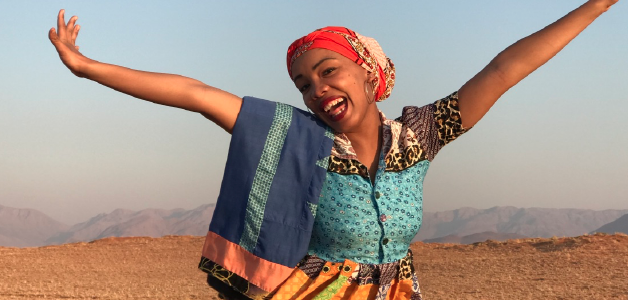
RuralRevive
Building a Desert Based Economy
This project of the Wolwedans Foundation in Namibia aims to create a model for a diversified local economy in the Namib Desert by assessing supply chain gaps and the needs of the local community to create entrepreneurial and employment opportunities for the underprivileged men and women of Maltahöhe and surrounds in the south-western part of Namibia.
Market linkages with the substantial tourism sector demand in the area will be established by creating a local marketplace, while sustainability and prospects to participate directly and indirectly in this Desert Based Economy will be assured through capacity building programs during the project’s lifetime (2021 – 2023).
Supported by the Wealth Inequality Programme of the Julius-Bär-Foundation.
Consultation in the Project Development and the Application Process, 2021
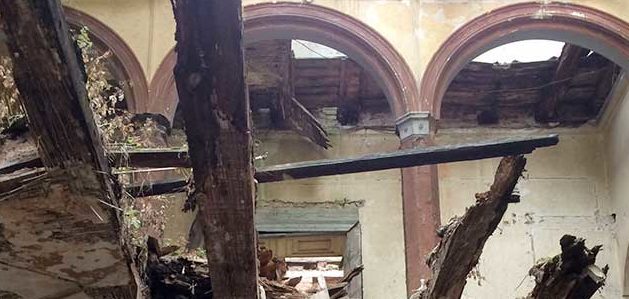
Schloss Broock
A new venue
for cultural purposes and conferences
Broock Castle is a long abandoned gem of the Western Pomeranian cultural landscape that has been left to decay for decades – an outstanding monument of special national importance.
The complex is almost completely preserved, a historic estate with castle, stables, riding hall, other stable and farm buildings and the spacious Lenné-Park.
The existing structures will be renovated, preserved and further developed, and the interior and exterior spaces will be equipped for conferences and cultural events.
The future cultural venue with a supra-regional and international orientation is being advised and supported by SH-RN Consultancy since 2021 in terms of the utilization concept and funding programmes, stemming from European Fonds, such as LEADER, INTERREG or the so called “Joint task of improving the regional economic structure”, GRW.
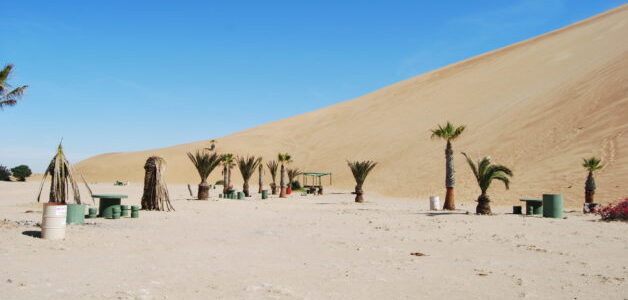
Museum Outreach Programme in Namibia
One of the challenges for Namibia is to reimagine the museum as a platform for community engagement and an egalitarian space for community debate and advocacy.
In this case museums cease to be sites where visitors come to learn about Namibian cultures and become spaces of cultural valuation, economic benefit and social debate. Such an approach transforms the museum to be a space of meaning to local communities and not only serve foreign visitors.
The Overall Objective of the Museum Outreach Programme is to strengthen civil society and cultural diversity through social cohesion, inter-ethnic dialogue and cultural tolerance.
It aims at redefining museums as places of self-valorization, thus, ensuring identity construction that comes from within the communities and inter-ethnic cultural tolerance through sharing mobile exhibitions. Democratic participation will enable the local indigenous communities to experience their human rights such as freedoms of expression, assembly, access to their cultural rights and the use of their own culture for economic benefit as granted in article 19 of the Namibian constitution.
To achieve all this, the MOP proposes an outreach project that will train heritage professionals and selected indigenous communities in basic object conservation and exhibition development.
Supported by the European Union in the framework of the European Initiative for Democracy and Human Rights (Europe Aid).
Consultation in the Project Development and Concept Note and Full Application Process, 2019
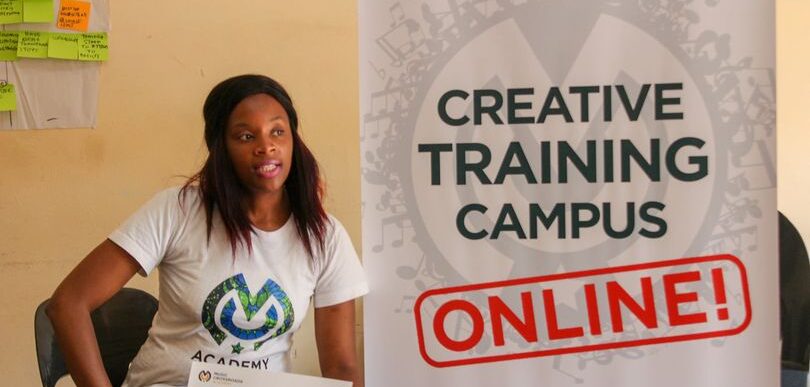
East African Creative Music Campus
The music sector all over Africa is going through a process of radical change, old rural methods for the oral transmission of culture are breaking down through migration to cities.
Music traditions are endangered and cannot be transmitted because they have not been properly transcribed and documented and there is a serious lack of curricula as well as of teachers.
The institutions seeking to address these issues lack the general business, entrepreneurial and networking skills needed to develop sustainably in the music business and education value chain.
This project, comprising 7 partners, 2 from Europe, 4 from East Africa, 1 from West Africa aims to address this situation. It draws on experiences and insights gained through various bi- and multilateral cooperative training and research activities amongst the partners over the past 8 years.
In its essence it envisages 3 joint capacity building actions involving the management of the partner organizations, representatives (training providers) of the local business community and youth workers (through mobility training) to professionalise the youth organizations facilitating their entry into local markets and enhancing their standing the music industry value chain.
Supported by the Capacity Building in the Field of Youth Programme of the European Union in the framework of Erasmus Plus
Consultation in the Project Development and the Application Process, 2019
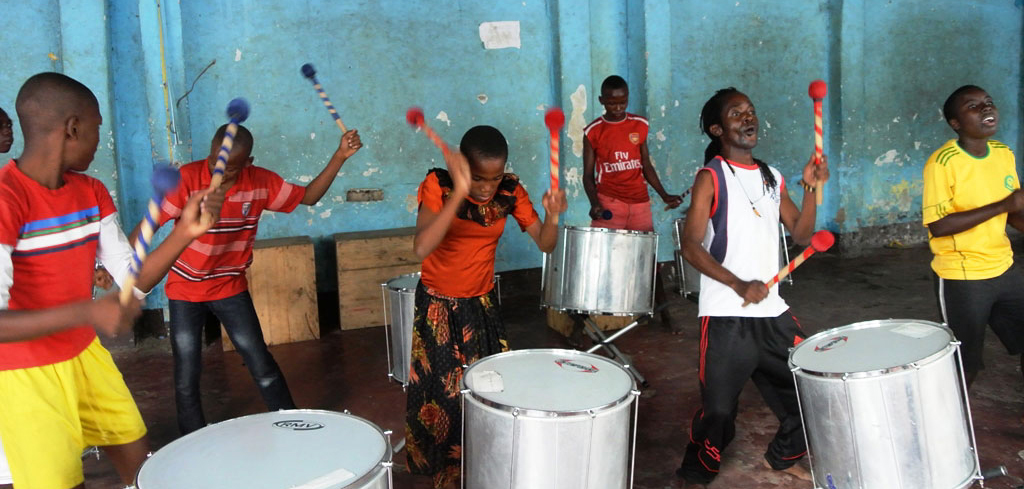
Creative Training for Youth Europe - Africa
The project is an exciting and innovative project that aims to empower young musicians in Southern Africa, through musical training and technical capacity building, promoting the active interaction of musicians, trainers, youth workers, and the creative industry, for the development of the creative economy.
This project will deliver training, to 160 participants, to develop the much needed technical skills, to improve their ability to generate income and improve their livelihood in the creative industry. The 160 participants will learn and undertake best practices that can be used beyond the scope of this project, multiplying the outreach.
Supported by the Capacity Building in the Field of Youth Programme of the European Union in the framework of Erasmus Plus
Consultation in the Project Development and the Application Process, 2018
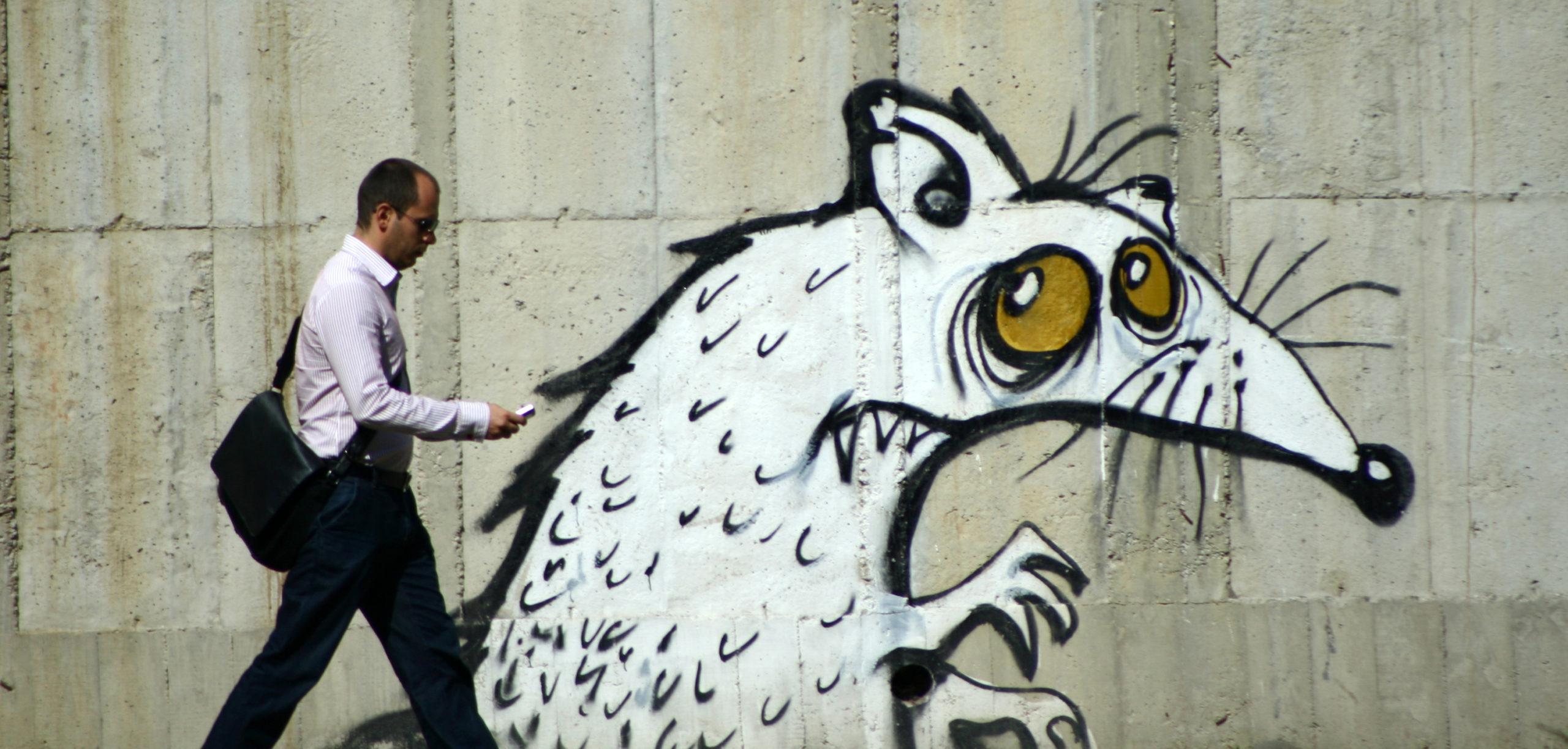
The Earth is flat
How to read media
Digital media’s increasing importance and benefits are globally accompanied by phenomena and threats of manipulation, propaganda, fake news and hate speech – to name only a few – that have already impacted media, civil societies, domestic and foreign policies around the world.
In resilient democracies, strong civil society actors and free media can decipher and counter »alternative facts« through broad information campaigns on media literacy and immediate, publicly available fact-checking. In these societies, large population groups read and watch political quality news magazines and can be reached through traditional as well as new media.
Hence, they are at least sensitized to the issue of fake news and are – in theory – empowered to deal with and assess propaganda and manipulation, distinguishing myths from facts.
The overall objective of the project is to strengthen civil society in the Russian Federation and its fundamental freedoms, such as freedom of the press and freedom of expression with a special focus on the Federation’s young population.
Therefore, the Goethe-Institut in Moscow provides various measures and activities in order to sensitize young Russians to the value of freedom of speech, promoting tolerance, inter-cultural understanding and social cohesion, and to empower them to actively participate in democratic dialogue through awareness-raising aimed at combating propaganda, populism or manipulation.
The project is initiated and co-ordinated by the Goethe-Institut e.V. Moscow branch.
Since 4 March 2022 the website of the project is blocked.
Supported by the European Instrument for Democracy and Human Rights (EIDHR) of the European Commission (2018-2020).
Consultation (Full Application including Logical Framework), 2017
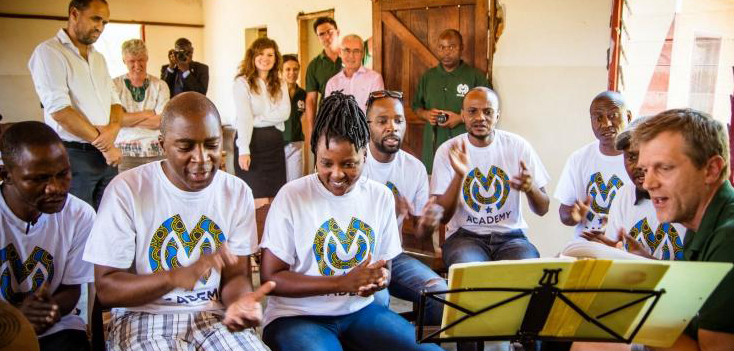
Global Music Campus A mobile music education network
Contrary to traditional university campuses the Global Music Campus is both temporary and mobile. The concept was designed together with our partners in East and Southern Africa with the aim of developing a mobile teacher training and skills development platform providing innovative new teaching solutions. Furthermore the Campus will train teachers to document their own music cultures themselves, thereby developing new teaching materials and curricula for implementation within the region.
The Global Music Campus is a unique combination of education, trans-cultural research and worldwide network. The modules developed will conform to the European Credit Transfer System (ECTS) and contribute to exchange and mobility among music professionals both in the South-South and the North-South context.
The ultimate aim is to contribute to the preservation and promotion of the diversity of cultural expressions through the creation of a regional music education network focused on the musics of the region.
The project is initiated and co-ordinated by the Global Music Academy Berlin.
Supported by the Capacity Building in the Field of Youth Programme of the European Union in the framework of Erasmus Plus
Consultancy (Project Development and Application), 2017 as well as directing a Capacity Building Workshop in Uganda, 2018
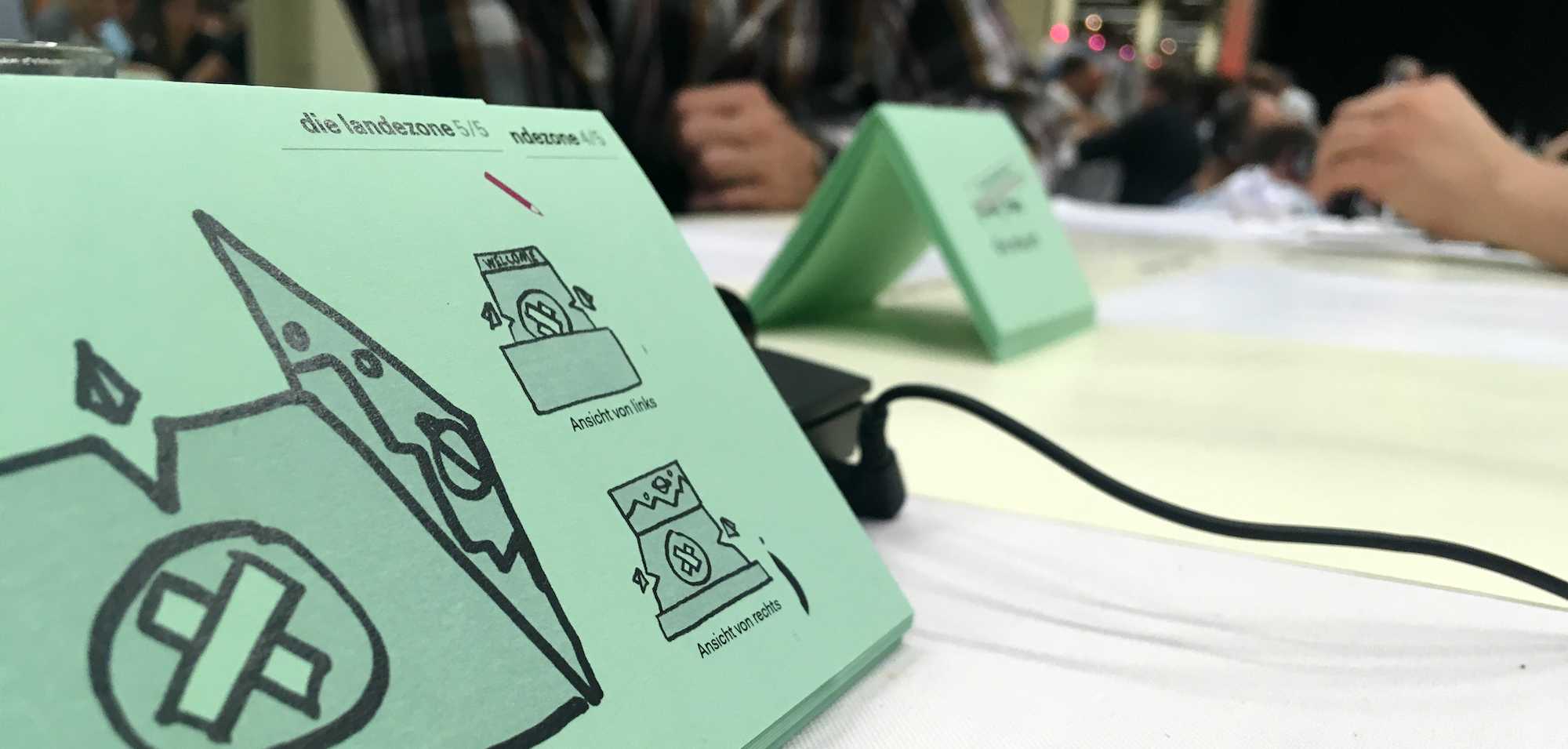
LABOURGAMES
the playful world of work
An innovation-oriented network project bringing together the »world of labour« with the »world of play« by allowing smart use of game principles and apply them in the working world to facilitate learning effects, decision-making and motivation.
A network of consortium partners from five European Countries (DE, UK, NL, IT and EL) with further »strategic partners« from the arts and game design, academia and research, labour market and the business world, open data organisations and the administration and policy field will generate new perspectives on the current labour system in Europe.
Over a period of three years they will be creating both, self-developed games and an in-depth investigation of game principles in specific processes in the working world.
A project initiated and co-ordinated by urban dialogues Berlin in collaboration with anschlaege.de
Supported by Creative Europe Culture Sub-Programme of the European Union
Application, Project Coordination and Evaluation, 2016-2019
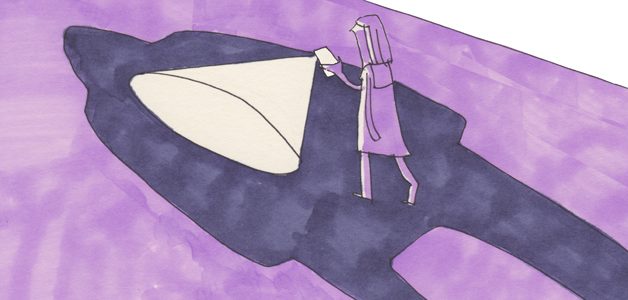
Short Film-Project for the Prevention of Sexual Abuse
The focus of the overall project is the production of a short film on the subject of sexual abuse of children. Experts agree that it is a particularly suitable medium for raising awareness and improving early detection and prevention of abuse.
Accordingly, it is planned to use the film for educational and training purposes, for socio-educational and teaching staff but also for parents and children.
A project initiated by Torsten Lueders and co-ordinated by urban dialogues Berlin.
Supported by the World Childhood Foundation.
Application and Project Coordination, 2016-2017
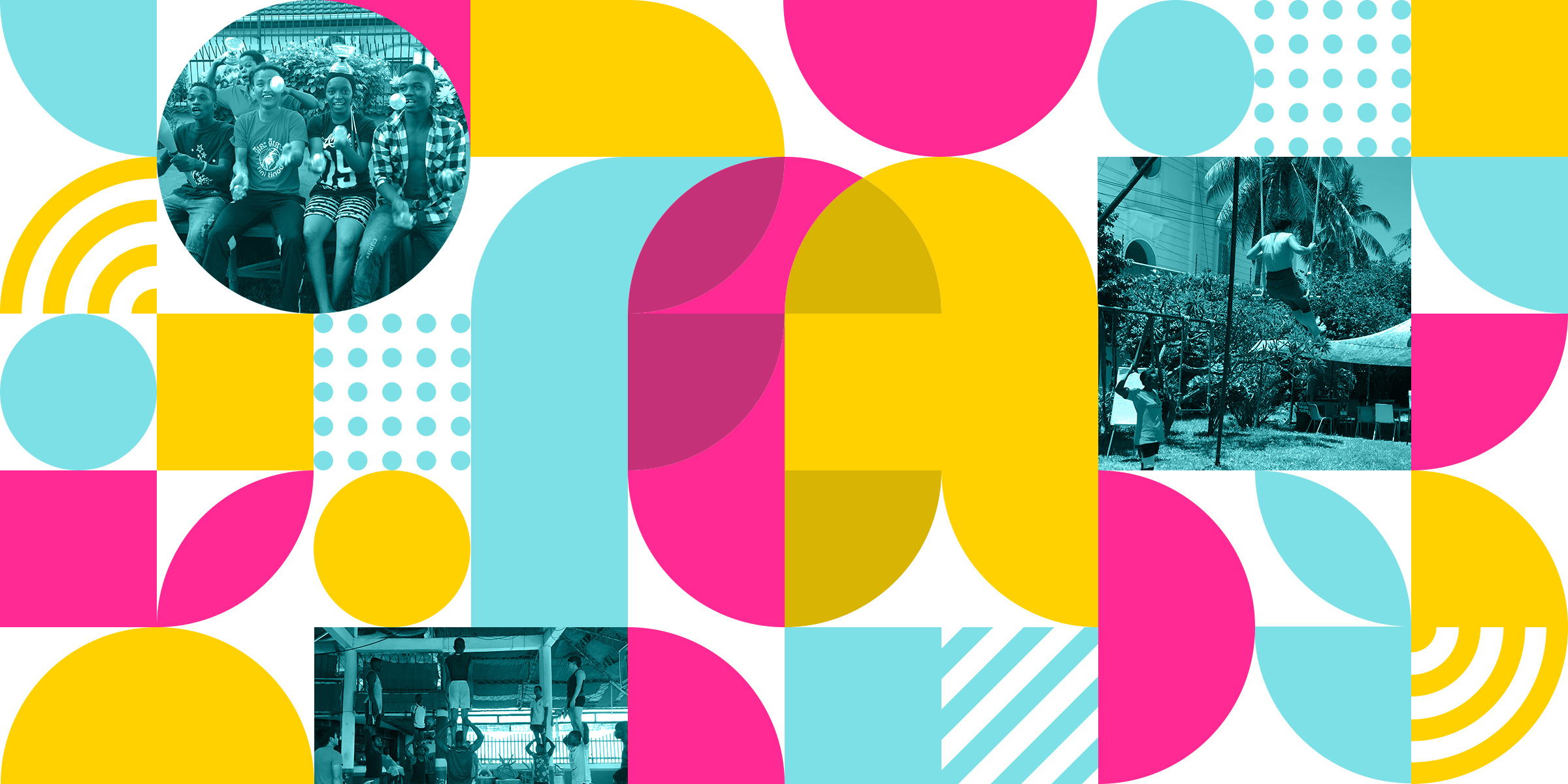
Flying Circus Academy
was a capacity building project, which intended as a comprehensive vocational training-of-trainers programme for circus- and percussion- trainers and creative youth workers. It aimed to professionalize circus’ work and learning by bundling existing “good practice” which stems from the experiences of the multi-continental consortium.
The partner consortium from France, Germany, Cambodia and Tanzania drew on solid circus performance expertise and international cooperation.
The video tutorial as the core product of the project is based to a great extent on »body language communication« and was developed during three international youth worker workshops in Dar es Salaam, Tanzania (October 2016), Battambang, Cambodia (March 2017) and Berlin, Germany (September 2017).
Supported by the Capacity Building in the Field of Youth Programme of the European Union in the framework of Erasmus Plus
Consultancy (Project Development and Application), Production Management and Evaluation, 2016-2018

Capacity Building for Young Music Businesses
The global music industry offers highly attractive employment and entrepreneurship opportunities for young musicians, designers and cultural managers. Yet the creative youth’s socio-economic reality is quite often precarious.
Closely intertwined with the entrepreneurial risk and only with additional income they are able to generate a decent living beyond poverty level – true for both the involved EU countries and the partner country Ghana.
Research stresses a lack of skills of young music businesses as to self-employment, negotiation power and media competency. These weaknesses increase the vulnerability and hamper the whole creative sector’s prosperity. The issues of copyright and fair remuneration are major challenges.
Taking up these challenges, the project build up young artists’ , creative workers’ and managers’ capacity in order to strengthen their market position and standing vis-à-vis the established operators of the value chain. In detail it aims to improve entrepreneurship competence, alternative use of the copyright and collection practices and new income systems based on digital markets.
The partners build up a cooperation structure to implement and disseminate capacity building activities. They conduct three Youth Mobilities involving more than 50 young artists and cultural managers from four countries directly linked to the music business offering practical and vocational training.
Moreover the beneficiaries will roll-out and multiply the project’s impact in cultural /youth organizations and within their position in the music business value chain.
Supported by the Capacity Building in the Field of Youth Programme of the European Union in the framework of Erasmus Plus
Consultancy (Project Development and Application), Facilitation of the Partners Kick-off Meeting, 2013-2014
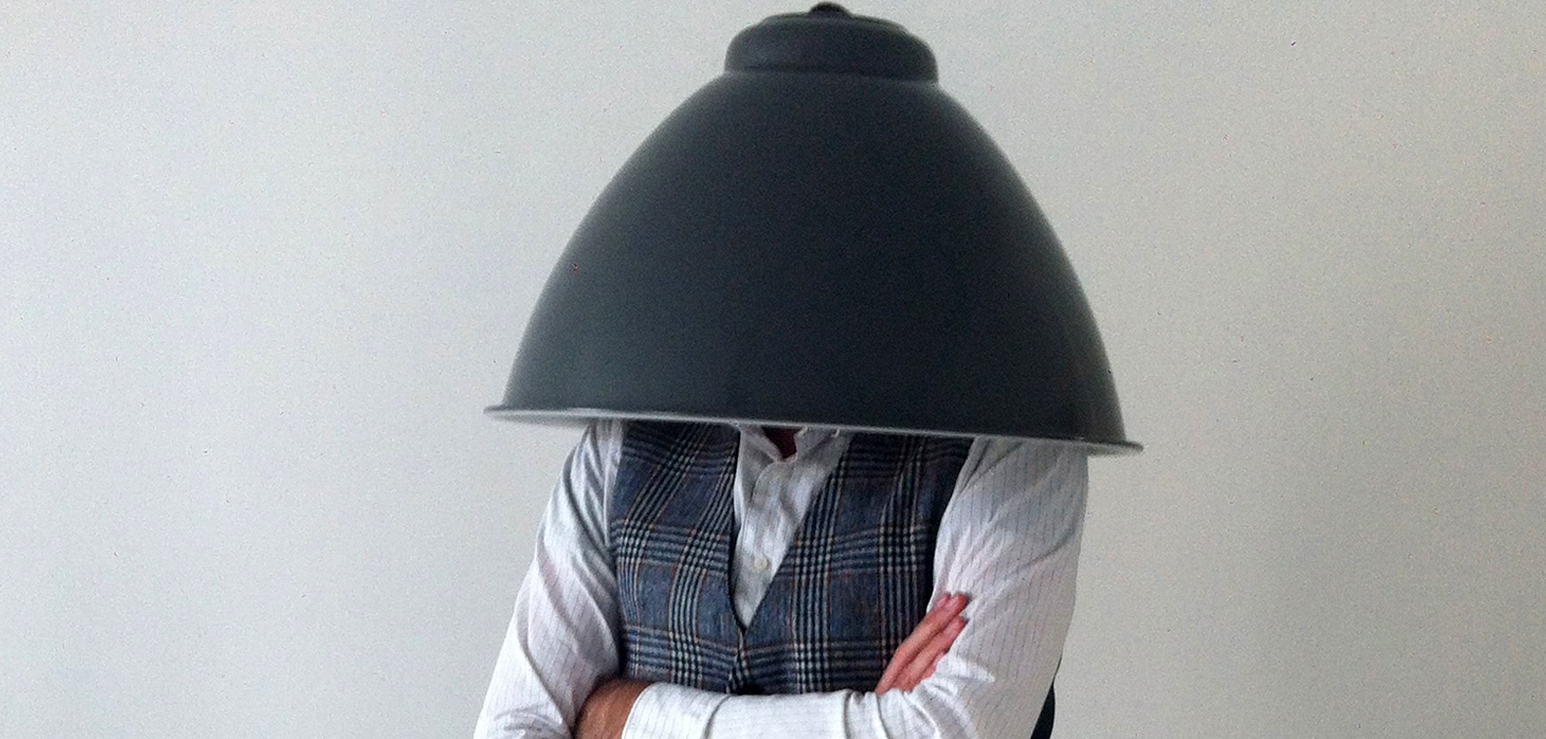
Free Internet for Free Media
The aim of the project was to use the international multi-stakeholder dialogue on the regulation of the Internet to build local structures in order to secure and promote freedom of expression and free Internet access.
The goal was to create, maintain or strengthen Internet Governance Forum (IGF) structures in four Asian and African countries together with local actors. Committed individuals were provided with tools and expertise that enable them to intervene more effectively and competently in their local socio-political and media contexts and, moreover, to increasingly broaden and stabilize their basis of action.
The project was carried out in the partner network on regulation, stakeholder mapping, networking and communication; it used the global UN Internet Governance Forum (UN IGF) as well as the experiences of nationally successful Internet governance initiatives to promote the establishment of local IGF structures.
Two key results were envisaged: a roadmap for the representatives of the eight countries involved and a transfer manual. This enabled a sustainable local impact beyond the project period as well as a transfer of experience to comparable countries.
Supported by Ministry for Economic Cooperation and Development of the Federal Republic of Germany (BMZ)
Consultancy (Project Development and Application) and formative Evaluation, 2016
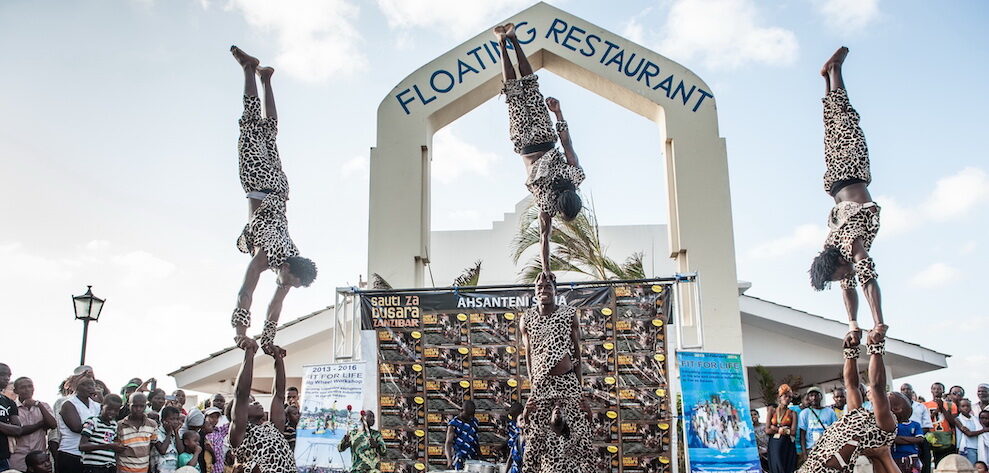
FIT FOR LIFE - Educating vulnerable youngsters in the arts and creative industries
FIT FOR LIFE is a project supported by the European Union to strengthen the cultural and creative industries in Tanzania.
FIT FOR LIFE offers a training programme to children and youth in one of the socially and economically most disadvantaged areas of Dar es Salaam in Tanzania.
Through enhancing the infrastructure of the BABAWATOTO Centre, a bundle of ongoing measures and activities and the development of a strong local and regional network, FIT FOR LIFE aims to establish a sustainable platform for cultural education laying out the seeds for social change.
As a result, children and young people will be given the opportunity to be involved in a shared artistic process.
FIT FOR LIFE aims to provide a forum in order to strengthen their social skills and to develop their cultural identity. In this way, competition within their own social reality is countered with tolerance and cohesion. Furthermore, necessary
tools and skills will lead them into the field of creative industries and economic development.
Funded by the EuropeAid-Programme of the European Union.
Consultancy (Project Management und EU-Application), Evaluation, 2014 – 2016
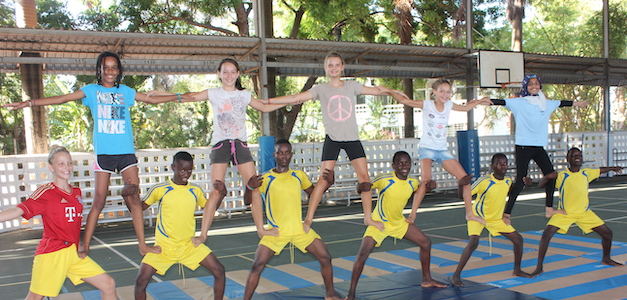
Capacity Building for Cultural Managers in Egypt’s remote Areas
The project aimed to sustainably strengthen the theoretical and practical capacities of cultural managers in the Egyptian provinces in the field of event management.
As a result improved technical and managerial capacities of the organizing team through the training modules as well as through the challenges and experiences arising from the project were established.
Experience as the main vector to success were given in a wide scope of topics guaranteed by the training period as well as through facing challenges and obstacles during the event and preparation phase.
New future projects resulted from networking, exchange and experience sharing because the cities covered by the events served as cultural network knots. A core goal of the project was the following alumni network, which enabled the participants staying in contact and sharing experiences and opportunities.
A project by the Goethe-Institut in Cairo.
Funded by the EuropeAid-Programme of the European Union.
Consultancy (Project Development and EU-Application), 2014
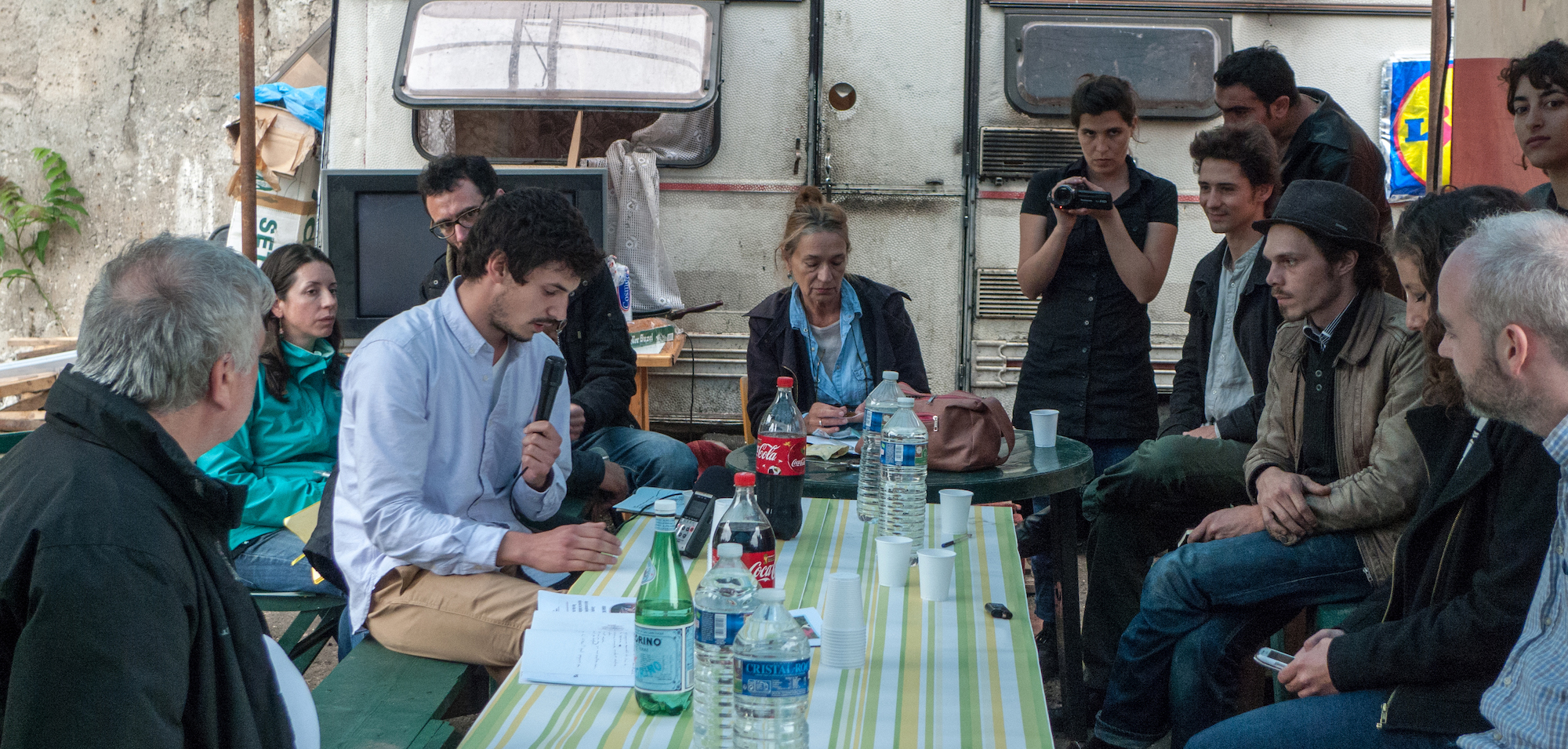
Nine Urban Biotopes - Negotiating the Future of Urban Living
9UB was an international, socially engaged art project delivering artistic research and cultural exchange. It does this both within and among social citizen and art initiatives in cities in South Africa and Europe in 2014.
The participating initiatives in Paris, Berlin, London, Turin and Johannesburg, Cape Town, Durban all distinguish themselves by addressing vital matters of concern with regard to contemporary urban living in innovative ways.
They work about and respond to issues of safety and housing, youth and migration, mobility and economical subsistence. They do so »on the ground« and »in the thick of life« in each city, which is the reason why they are referred to as »urban biotopes« giving the overall project its name.
The project was initiated and coordinated by urban dialogues art association in Berlin in collaboration with 12 European and South-African Partners, Goethe-Institut Johannesburg, Wits University Johannesburg and Goldsmiths College University of London, amongst others.
Supported by Culture Programme of the European Union
and Deutsche Gesellschaft für Internationale Zusammenarbeit (GIZ)
Project Development and Application, Artistic Direction and Project Coordination, 2013-2015
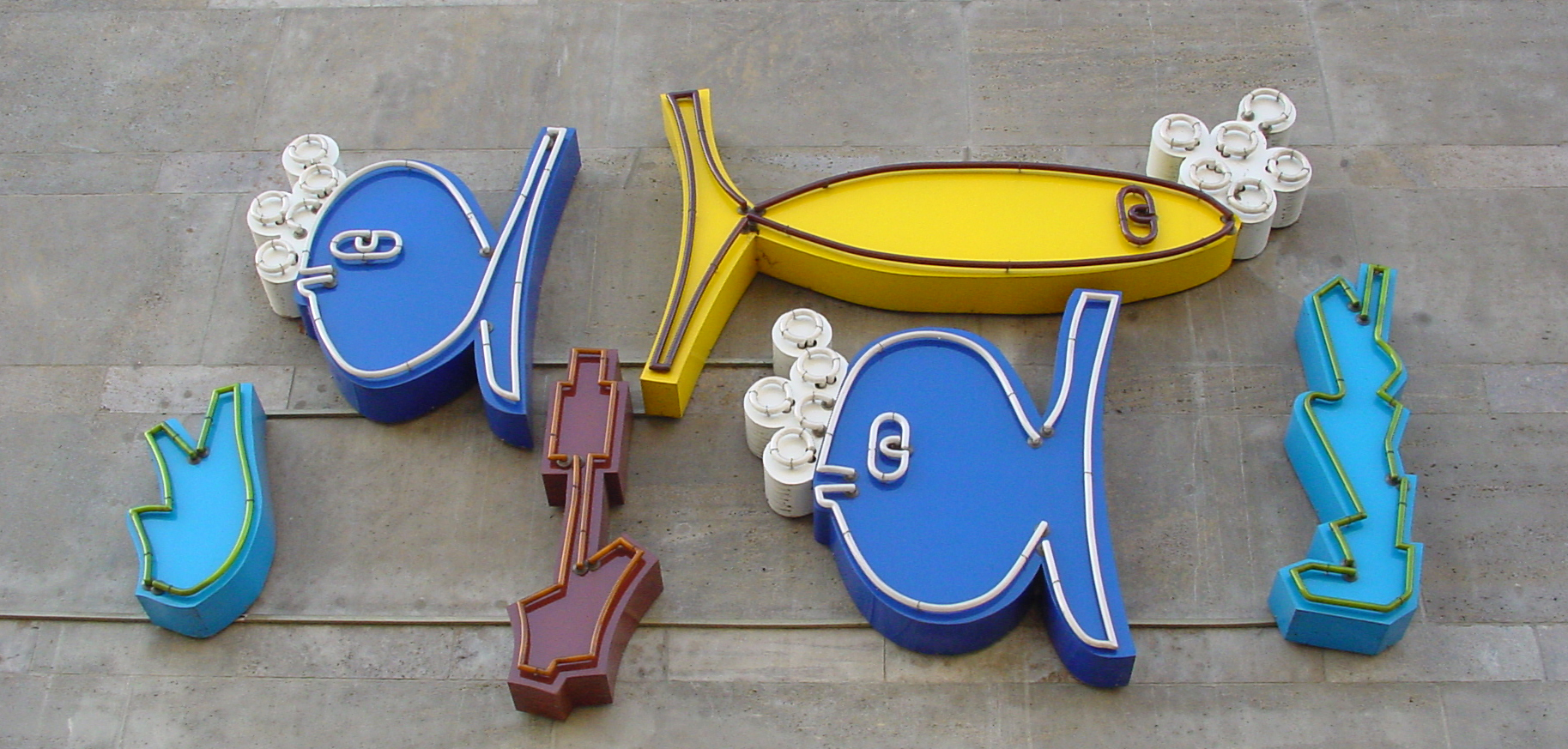
Signs of the City
Metropolis speaking
A photographic youth art project by the Berlin art association urban dialogues in the four European metropolises of Berlin, London, Sofia and Barcelona in collaboration with Goldsmiths College, University of London, House of World Cultures Berlin and other partners in Great Britain, Spain, Germany and Bulgaria.
Awarded as best practice for intercultural dialogue by the European Union
Final Exhibition at House of World Cultures Berlin.
www.citipix.net
Funded by Hauptstadtkulturfonds Berlin, British Council, Ajuntament de Barcelona, Spanish Embassy Berlin and the Culture Programme of the European Union
Project Development, Artistic Direction, Project Coordination and formative Evaluation, 2007-2009
90 Seconds for a better future
An installation project on the subject of sustainability by the Berlin art association urban dialogues in cooperation with the educational institution Zukunftsbau GmbH and in cooperation with the Akademie der Künste Berlin and Zukunftsbau.
Funded by Berliner Projektfonds Kulturelle Bildung
Artistic Direction, 2011
Sieben Felder (Seven Fields)
An aesthetic and urban field research by the youth art center Schlesische27 with a final exhibition at House of World Cultures in Berlin.
Funded by Berliner Projektfonds Kulturelle Bildung and Bundeszentrale für politische Bildung
Curatorial Direction, 2011
House of World Cultures Programme Website
Geschmack –
der gute, der schlechte
und der wirklich teure
An exhibition project by Staatliche Kunsthalle Baden-Baden
Curatorial Assistance, 2011
Website Kunsthalle Baden-Baden
Never Land. Kein Land in Sicht
A theatre project with refugees by Deutsches Nationaltheater Weimar
Overall Theatre Design (Set, Video, Light and Costumes), 2011
Animated Film as part of the Scenography
Furor!
A multichannel video installation in the framework of the exhibition “On rage” by House of World Cultures Berlin.
Artistic Direction, 2010
ISLANDS+GHETTOS
cities, territories, borders
An exhibition project on the topic of inner-city segregation tendencies with presentations in Heidelberg, Berlin and Graz.
A Project by Heidelberger Kunstverein in cooperation with American University of Sharjah, UAE and Urban Think Tank, Caracas, Venezuela
Funded by the Federal Cultural Foundation of Germany
Project Development and Co-Curation, 2007-2009
Federal Cultural Foundation Website Projekte
Transnational project coordination and quality assurance
Consultancy of the practical vocational training research group
University of Bremen as part of vocational training projects, 2005 – 2006 and 2008 and vocational support organization of the construction industry NRW e.V. Kerpen, 2009 – 2010
Media Projects
A media research on behalf of the Brandenburg Ministry of Labor, Social Affairs, Health and Women
Evaluation, 2005
Waste Train und Waste-Tool
Projects for the development of teaching / learning media in building trades within the framework of the EU program “Leonardo da Vinci” Life Long learning.
Project Development, Coordination and Evaluation, 2004-2009
ProJobEuropa
A project on the professional mobility of young workers in East Germany as part of the EU community initiative »Equal«.
Evaluation, 2003-2005
